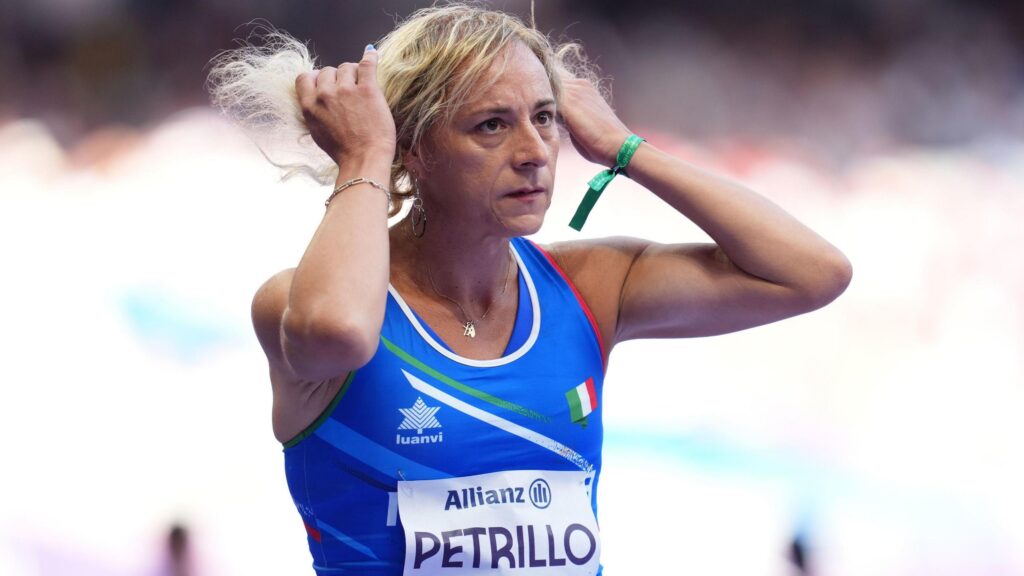A recent NBC News poll reveals that a majority of Americans oppose allowing transgender women to compete in female sports, highlighting a significant cultural divide on this contentious issue. Notably, the poll indicates that opposition extends across generations, including approximately two-thirds of Generation Z respondents. The findings come amid ongoing national debates over transgender rights and athletic participation, raising questions about fairness, inclusion, and policy development in sports at all levels.
Poll Reveals Majority of Americans Oppose Trans Women in Female Sports
Recent survey data highlights a significant opposition among Americans regarding the participation of trans women in female sports divisions. The numbers indicate that not only do a majority of adults express concern, but this sentiment is notably strong even among younger generations, including those within Gen Z. The data reflects complex societal attitudes toward gender identity and fairness in competitive athletics, drawing attention to ongoing debates at both community and legislative levels.
- Overall opposition: Over 60% of respondents oppose trans women competing in women’s sports.
- Gen Z stance: Nearly two-thirds of Gen Z individuals share this view, marking a generational trend that challenges common assumptions about younger audiences.
- Political divides: Views vary significantly across political lines, influencing policy discussions nationwide.
| Age Group | Opposition Percentage | Support Percentage |
|---|---|---|
| Gen Z (18-24) | 66% | 28% |
| Millennials (25-40) | 59% | 35% |
| Gen X and Older | 62% | 33% |
This polling insight comes at a time when state legislatures continue to debate policies aimed at regulating sports participation based on biological sex versus gender identity. Supporters of restrictions argue the need to preserve competitive fairness and protect women’s opportunities, while opponents call for inclusivity and protection of transgender rights. The data suggests that Americans remain deeply divided, with younger voices participating actively in shaping the conversation around sports equality.
Generational Divide Emerges as Two Thirds of Gen Z Share Opposition
Recent polling data reveals a noteworthy generational split on the subject of transgender women participating in female sports. While the majority of Americans express opposition, what stands out is that approximately 66% of Generation Z respondents also share this view, challenging the common perception that younger generations overwhelmingly support progressive social policies. This data suggests that skepticism regarding competitive fairness transcends traditional political and demographic boundaries.
The findings further indicate a complex landscape where values related to athletic competition and gender identity intersect. Key reasons cited by opposition among Gen Z participants include:
- Concerns about biological differences impacting fairness
- Desire to maintain equity in women’s sports
- Influence of parental and community perspectives despite broader social trends
| Age Group | Oppose Inclusion (%) | Support Inclusion (%) |
|---|---|---|
| Gen Z (18-24) | 66% | 30% |
| Millennials (25-40) | 59% | 35% |
| Gen X and Older | 71% | 25% |
Experts Weigh Impact of Trans Athlete Participation on Competitive Fairness
Debates around trans athlete participation in female sports have intensified as experts disclose contrasting views on competitive fairness. Some specialists emphasize the physiological advantages they believe trans women might retain post-transition, such as bone density and muscle mass, which could influence race outcomes and overall athletic performance. This perspective stresses the importance of creating clear eligibility standards to preserve a level playing field for cisgender female athletes, ensuring equity in opportunities and achievements.
Conversely, other analysts advocate for inclusivity and highlight the benefits of allowing all athletes to compete according to their gender identity. They argue that existing policies, often established by sporting bodies like the International Olympic Committee, are designed to balance fairness with respect for human rights. Below is a summary comparing key expert viewpoints often cited in the discourse:
| Aspect | Concerns About Competitive Fairness | Arguments for Inclusion |
|---|---|---|
| Physiological Traits | Retention of male puberty advantages | Testosterone suppression mitigates advantages |
| Impact on Records | Potential for records to be broken unevenly | Focus on individual athletes, not record dominance |
| Policy Implementation | Need for stricter, sport-specific rules | Emphasis on inclusive and evolving guidelines |
| Social Considerations | Fairness to cisgender women | Recognition of gender identity and mental health |
Policy Recommendations Aim to Balance Inclusion with Athletic Integrity
In response to growing public concern, lawmakers and sports organizations are increasingly advocating for policies that strive to respect the rights of transgender athletes while preserving fair competition in female sports. Proposals often emphasize a nuanced approach, including hormone level monitoring, eligibility criteria based on transition timelines, and distinct categories to ensure inclusivity without compromising athletic integrity. These frameworks aim to acknowledge the complex biological factors involved, addressing both competitive fairness and the lived experiences of transgender individuals.
Policy developers recommend several key measures to promote balance, such as:
- Standardized hormone thresholds to determine eligibility for female-category participation
- Clear guidelines for transition periods before competing
- Investment in inclusive training programs that educate coaches and athletes
- Ongoing research to inform evidence-based decisions
| Policy Component | Purpose |
|---|---|
| Hormone Level Monitoring | Ensure competitive fairness |
| Transition Eligibility Timelines | Provide clear participation guidelines |
| Educational Programs | Foster understanding and acceptance |
| Scientific Research | Inform future policy updates |
In response to growing public concern, lawmakers and sports organizations are increasingly advocating for policies that strive to respect the rights of transgender athletes while preserving fair competition in female sports. Proposals often emphasize a nuanced approach, including hormone level monitoring, eligibility criteria based on transition timelines, and distinct categories to ensure inclusivity without compromising athletic integrity. These frameworks aim to acknowledge the complex biological factors involved, addressing both competitive fairness and the lived experiences of transgender individuals.
Policy developers recommend several key measures to promote balance, such as:
- Standardized hormone thresholds to determine eligibility for female-category participation
- Clear guidelines for transition periods before competing
- Investment in inclusive training programs that educate coaches and athletes
- Ongoing research to inform evidence-based decisions
| Policy Component | Purpose |
|---|---|
| Hormone Level Monitoring | Ensure competitive fairness |
| Transition Eligibility Timelines | Provide clear participation guidelines |
| Educational Programs | Foster understanding and acceptance |
| Scientific Research | Inform future policy updates |
In Conclusion
As the debate over transgender participation in female sports continues to unfold across the United States, the recent NBC News poll highlights prevailing public concerns and generational divides on the issue. With a majority of Americans, including significant opposition within Gen Z, expressing reservations about trans women competing in female sports, policymakers and sporting organizations face mounting pressure to navigate a complex landscape of fairness, inclusion, and rights. The conversation remains highly dynamic, reflecting broader cultural and political challenges that will likely persist in the national discourse.





